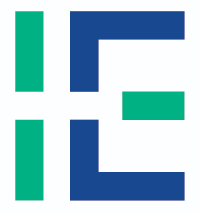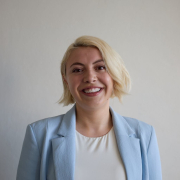Please tell us a little bit about yourself
I’m half-Swedish and half-New Zealander and grew up living in different cities across Germany, Italy and Sweden. I then came to Melbourne where I completed a Bachelor of Science (major in Bioengineering) and a Master of Engineering (Biomedical) at The University of Melbourne. It was during my master’s degree that I discovered my passion for both MedTech innovation and human-centered design while completing the programs BioDesign Innovation and Leadership for Innovation as well as working at the university’s Opportunity Lab. I then went on to co-found two MedTech startups, one in lumbar puncture guidance technology and another in cardiovascular disease screening in rural and remote areas. In my free time, my favourite thing is to curl up with a good book.
Please describe what you do in your role
I support groups with MedTech/HealthTech projects to ensure that they can successfully commercialise their technology. I do this either directly or indirectly by connecting the team with a third-party expert. This support includes making sure they have a team that includes people who can fill the roles of ‘clinician’, ‘entrepreneurial driver’ and ‘technology lead’. It also includes helping teams design and/or prototype their solution as well as helping them create business, regulatory and IP strategies. I also help manage IHealthE’s Innovation Catalyst Awards.
What excites you most about this role?
The thing that most excites me about this role is working with amazing MedTech startups that have the potential to positively impact millions of lives. I’m also excited to be providing the support that a lot of MedTech startups desperately need. It’s a long journey and founders need expertise in product development, business, regulatory affairs, IP law, clinical trials, etc. to make their idea a reality.
The support IHealthE provides is something I would have loved to have had access to when I was working on my own MedTech startups.
From your experience, what are the key ingredients that drive success in health technology projects and innovations?
In my experience, having the right team makes or breaks health technology projects. You want to have a diverse team because you want each team member to bring a unique perspective to the table. Commercialising health technologies is a long and windy road so there needs to be a lot of mutual respect within the team. You also have to build a product that people really need. We call this a “need pull” (as opposed to a “technology push”), which essentially means that you are creating a product that solves an unmet need rather than creating a cool technology and hoping there is a market for it.
What would you say to young professionals or students aspiring to enter the field of biomedical engineering and MedTech?
Don’t believe the narrative that revolutionary technologies come from lone geniuses. Innovative medical technologies come from teams of people working together diligently over long periods of time. You could be a part of a team that creates the next big thing in MedTech!
Are there any valuable resources or networks you'd recommend to our readers?
The book “Biodesign: The Process of Innovating Medical Technologies” is my bible for all things MedTech innovation and I would highly recommend it to any aspiring MedTech entrepreneurs. Building a network of people working in the MedTech startup space is very important because being a startup founder can be very lonely and also you never know when you will need to call on someone in your network for help (or vice versa). I would highly recommend joining accelerator programs or pitch competitions. Or you could join the IHealthE Innovation Catalyst Awards!

